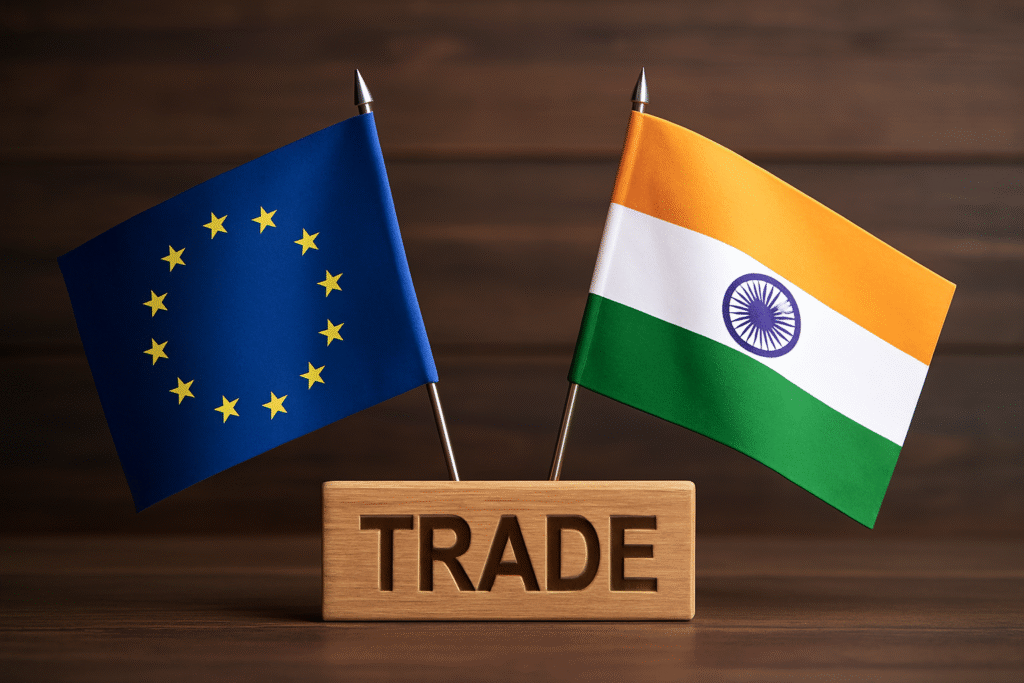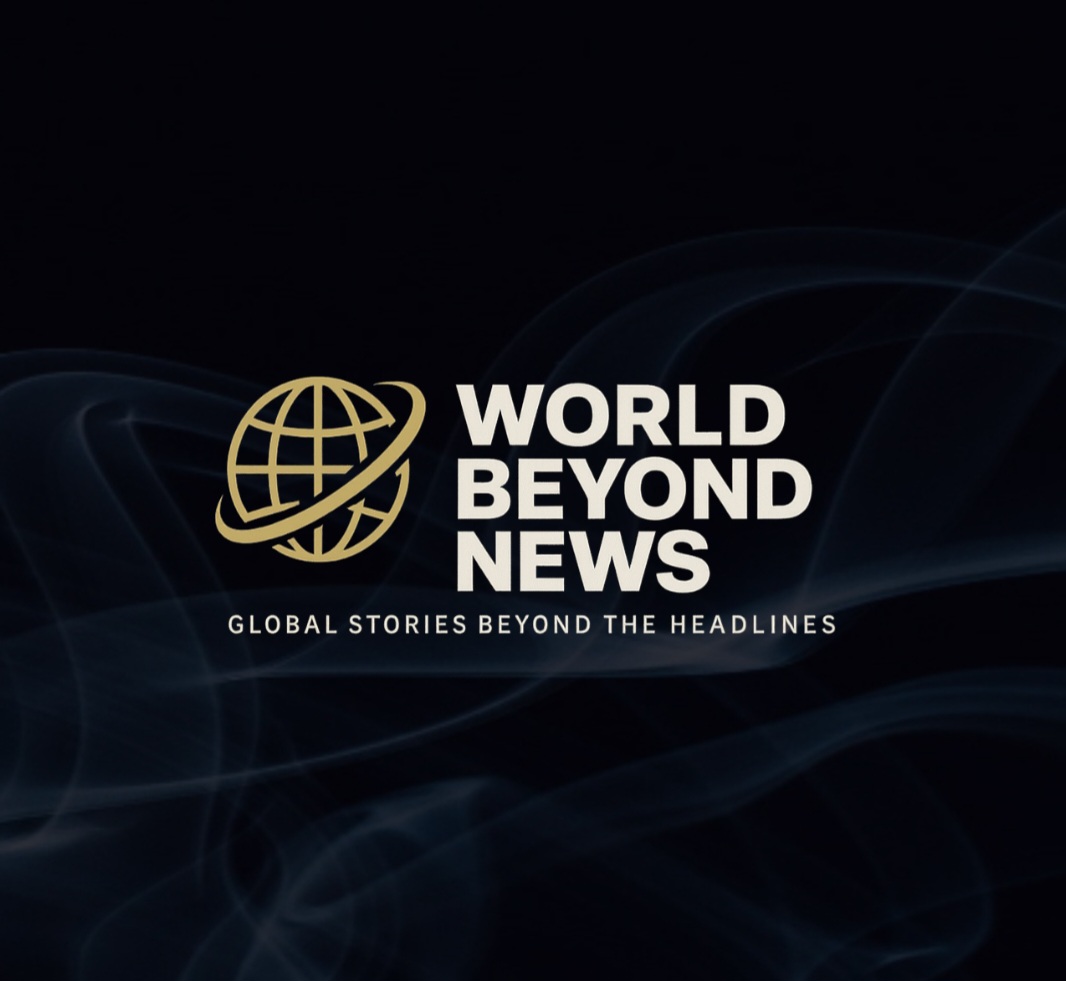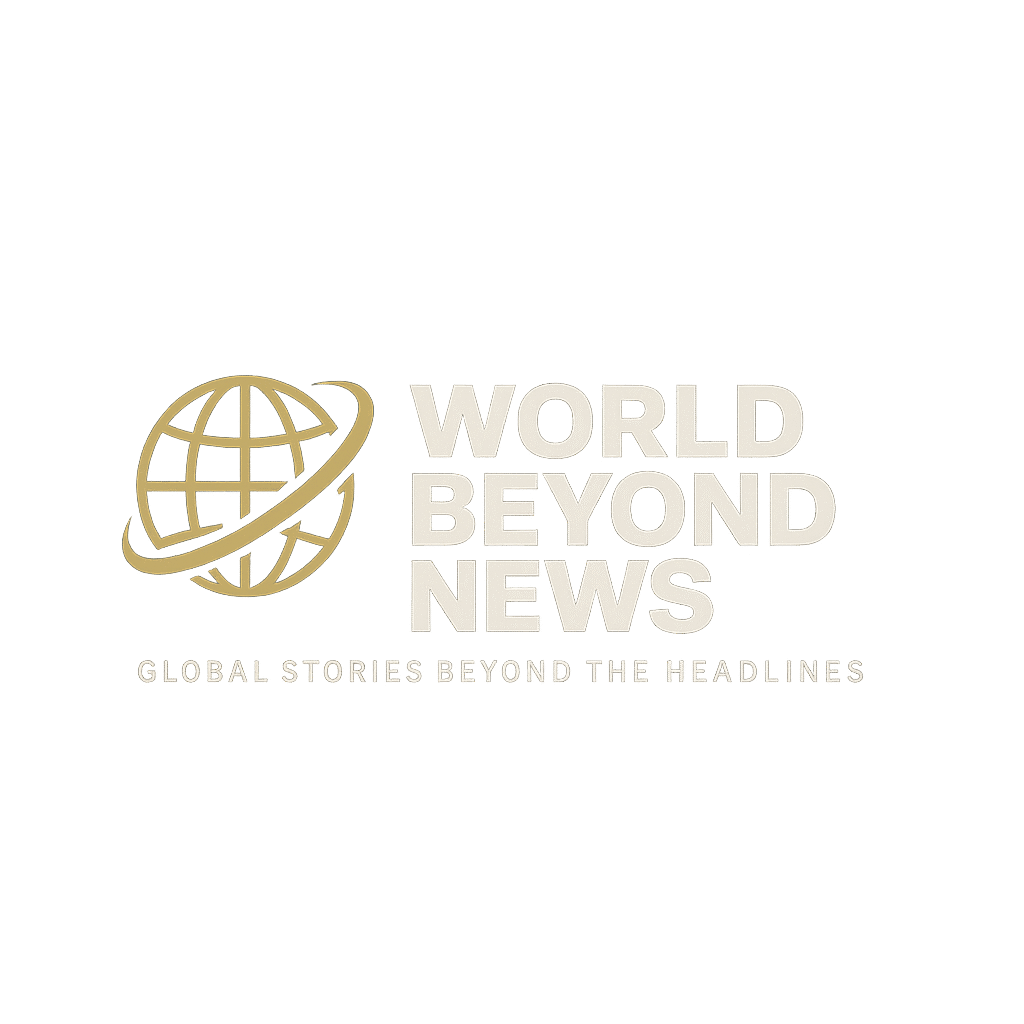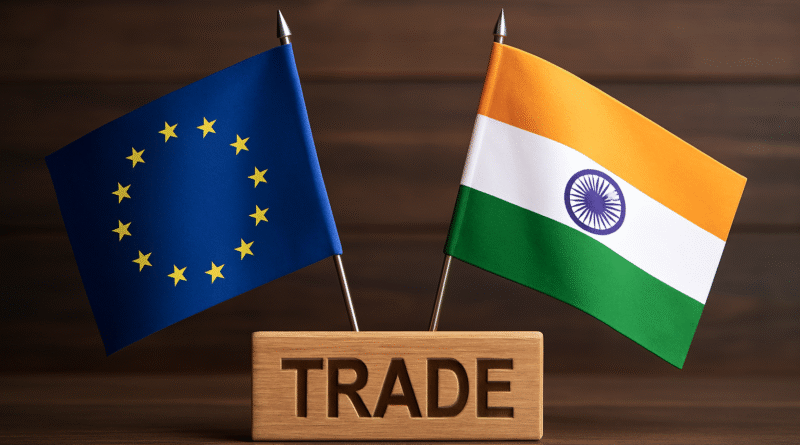NATO Issues 100% Tariff Warning as India-Russia Trade Deepens

India Russia Trade NATO Warning: India’s increasing trade with Russia has triggered alarm bells in NATO and the European Union. As India deepens its economic ties with Moscow, the growing India-Russia trade relationship now faces intense scrutiny. NATO has threatened 100% tariffs and secondary sanctions on countries maintaining strong ties with Russia — a move directly impacting India.
India Russia Trade NATO Warning: NATO’s 100% Tariff Threat
NATO Secretary-General Mark Rutte recently urged India, China, and Brazil to directly pressure Russia into peace talks. His stern statement — “This might hit you very hard” — signals that India could face severe economic consequences if it doesn’t align with Western demands.
These comments follow former U.S. President Donald Trump’s similar threats. He warned that if Russia fails to engage in peace talks within 50 days, the West will escalate pressure. Together, these warnings reflect a coordinated strategy by NATO and EU powers to isolate Russia economically — and dissuade global partners like India from continuing trade.
India Russia Trade NATO Warning: Why It Matters to India
India’s imports of Russian oil, coal, and fertilizers have surged in recent years. This has offered short-term relief to the Indian economy by easing inflation and ensuring energy security. However, such trade increases friction with Western partners, especially the EU and NATO.
Concerns are growing that the India Russia Trade NATO Warning could derail Free Trade Agreement (FTA) discussions between India and the EU. Indian exporters may also become unintended victims of secondary sanctions — even if their goods aren’t directly connected to Russia.
Is This a Coordinated Western Strategy?
The threat of secondary sanctions and punitive tariffs is part of a larger geopolitical tactic to pressure neutral powers. NATO’s strategy appears to include:
- Using economic leverage to isolate Russia.
- Offering trade deals as rewards for alignment.
- Discouraging emerging economies from engaging deeply with sanctioned nations.
This aligns with the EU’s broader support for Ukraine and its stance on global economic realignment.
Read more about NATO’s official stance on Russia at the Reuters website.
India’s Response to NATO and EU Concerns
India has maintained its neutral stance amid rising global tensions. Officials emphasize:
- The India-Russia trade is legally compliant under international norms.
- Energy needs and inflation control drive the partnership.
- India’s foreign policy is based on strategic autonomy, not alignment.
India continues dialogue with the EU and the U.S. to ensure its long-term partnerships remain strong. Efforts are underway to keep India-EU FTA talks on track despite growing friction.
India Russia Trade NATO Warning: Global Reactions
The India Russia Trade NATO Warning has sparked a ripple effect globally. While the West steps up its pressure campaign, other nations — especially in Asia and Africa — caution against interfering with sovereign trade decisions.
Experts say India could turn this crisis into an opportunity:
- Diversifying trade partnerships
- Strengthening its mediator role in global diplomacy
- Negotiating flexible terms in FTAs with the EU and other Western allies
India’s outreach through BRICS, SCO, and G20 gives it leverage to remain non-aligned while protecting national interests.
What’s Next for India-Russia Trade and EU Relations?
Key questions remain:
- Will India scale back Russian imports to avoid Western tariffs?
- Could this warning accelerate or derail the India-EU FTA?
- Will India emerge as a global peace broker, or double down on autonomy?
India’s next steps in response to the India Russia Trade NATO Warning will shape its global identity — either as a bridge between East and West, or as a firm voice for non-alignment.
While the West expresses concern, India’s decision to call NATO’s tactics into question reflects a shift in how emerging powers assert their autonomy.
NATO Secretary-General Mark Rutte urged leaders in India, China, and Brazil to pick up the phone and pressure Vladimir Putin to re-enter peace talks — or face the consequences. He said, “This might hit you very hard“, referring to possible 100% tariffs on Russian goods from these countries.
Rutte’s statement came shortly after Donald Trump threatened similar measures if a peace deal isn’t reached within 50 days, pushing a coordinated Western pressure campaign
Looking Ahead, Only time will tell…
Will India tweak its Russian imports to safeguard EU relations?
Could this push lead to an India‑EU FTA breakthrough—or stall?
Will India seize this moment to emerge as a global mediator, or will it double down on strategic autonomy?
The India Russia Trade NATO Warning is more than just a diplomatic statement — it is a critical inflection point. As India balances energy security, economic growth, and foreign diplomacy, its choices will influence not only regional stability but also the future of global trade alliances.
“While the West expresses concern, India’s decision to call NATO’s tactics into question reflects a shift in how emerging powers assert their autonomy.”
For Broader Sports & World Updates
While you’re catching up on our in-depth match coverage, don’t miss the latest diverse headlines from World Beyond News, where insightful stories beyond cricket are just a click away:
👉 Explore more at World Beyond News to stay informed on global affairs, sports, and trending events around the world.

World Beyond News is your go-to source for global news, trending updates, sports coverage, and fresh perspectives on current events. Stay informed with truth and clarity.


Pingback: NATO’s Russia Trade Warning Backfires: India Calls Out Double Standards